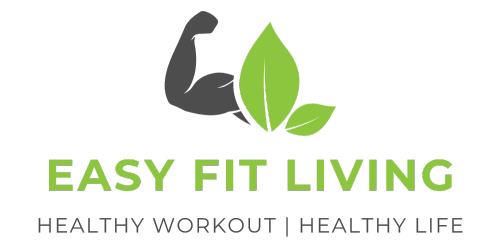Are you looking to maximize the effectiveness of your workouts by fueling your body with the right nutrients? We all know that what we eat plays a crucial role in our overall performance, but figuring out the optimal fuel for workouts can be a daunting task. Whether you’re a seasoned athlete or a fitness enthusiast, finding the right balance of nutrients can be challenging. In this article, we will explore the key nutrients your body needs for workouts and provide some practical tips to help you fuel up effectively. Get ready to take your workouts to the next level!

Why Fueling Your Body with the Right Nutrients is Important
As you strive to achieve your fitness goals and perform your best during workouts, fueling your body with the right nutrients is essential. The food you consume provides the energy and building blocks your body needs to function optimally. By understanding the importance of proper nutrition, you can boost your energy levels, enhance performance, and promote muscle growth and recovery.
Boosts Energy Levels
One of the key benefits of fueling your body with the right nutrients is the boost in energy levels. Carbohydrates, proteins, and fats are macronutrients that provide the energy needed for all bodily functions, including your workouts. Carbohydrates, in particular, are the body’s primary source of energy. By consuming complex carbohydrates such as whole grains, legumes, and vegetables, you provide your body with a steady release of energy throughout your workout. Simple carbohydrates, found in fruits and refined sugars, can also provide quick energy boosts when needed.
Enhances Performance
Proper nutrition plays a crucial role in enhancing your overall performance during workouts. When your body is well-fueled, you can push harder, go the extra mile, and accomplish more in your exercise routine. Proteins, for example, are responsible for repairing and building muscles, which is fundamental for improving performance. By including adequate amounts of proteins in your diet, you provide your body with the necessary building blocks to build and repair muscles, leading to improved strength and endurance.
Promotes Muscle Growth and Recovery
Fueling your body with the right nutrients is vital for promoting muscle growth and aiding in recovery. During workouts, your muscles undergo stress and require proper nourishment to repair and grow stronger. Protein, as mentioned earlier, plays a crucial role in muscle repair and growth. Whether you choose animal-based proteins like lean meats, fish, and dairy or plant-based proteins such as legumes, tofu, and quinoa, ensuring an adequate intake of protein supports muscle growth and recovery.
1. Understanding Macronutrients
Macronutrients are the nutrients that your body requires in large quantities to function properly. They include carbohydrates, proteins, and fats. Understanding the role of each macronutrient is essential in fueling your body effectively for workouts.
Carbohydrates
Carbohydrates are your body’s primary source of energy. They are broken down into glucose, which is used by your cells to produce energy. There are two types of carbohydrates: complex carbohydrates and simple carbohydrates.
Complex Carbohydrates
Complex carbohydrates are rich in fiber and take longer to digest, providing a sustained release of energy. Examples of complex carbohydrates include whole grains like oats, brown rice, and quinoa, as well as legumes and vegetables. These carbohydrates are ideal for fueling your body before a workout, as they offer a steady supply of energy.
Simple Carbohydrates
Simple carbohydrates, on the other hand, are quickly digested and provide a rapid energy boost. They are found in fruits and refined sugars. While they can offer immediate energy, it is important to consume them in moderation, as their quick digestion can lead to a crash in energy levels.
Proteins
Proteins are essential for repairing and building muscle tissue. They are made up of amino acids, which are the building blocks for your body’s cells. Including adequate amounts of protein in your diet is crucial for supporting muscle growth and recovery.
Animal-based Proteins
Animal-based proteins are complete proteins, meaning they contain all the essential amino acids your body needs. Lean meats, poultry, fish, and dairy products are excellent sources of animal-based proteins. They provide high-quality protein and essential nutrients that support muscle repair and growth.
Plant-based Proteins
Plant-based proteins are an excellent option for individuals following vegetarian or vegan diets. While plant-based proteins may not contain all the essential amino acids on their own, combining different plant-based protein sources, such as legumes, tofu, tempeh, and quinoa, can provide a complete amino acid profile. Plant-based proteins also offer additional benefits such as fiber, antioxidants, and phytonutrients.
Fats
Fats are often misunderstood and feared, but they play a crucial role in fueling your body for workouts. Fats provide concentrated energy and support various bodily functions such as hormone production, brain health, and nutrient absorption. There are different types of fats, including healthy fats, saturated fats, and trans fats.
Healthy Fats
Healthy fats, such as monounsaturated and polyunsaturated fats, are beneficial for your overall health. They can be found in foods like avocados, nuts, seeds, and fatty fish. These fats offer a source of sustained energy and help with the absorption of fat-soluble vitamins.
Saturated Fats
Saturated fats, commonly found in animal products like fatty cuts of meat and full-fat dairy, should be consumed in moderation. While they are a concentrated source of energy, excessive intake of saturated fats may increase the risk of heart disease.
Trans Fats
Trans fats are artificially produced fats found in processed and fried foods. These fats should be limited as much as possible, as they have been linked to various health issues, including heart disease and inflammation.

2. Pre-workout Nutrition
Carbohydrates for Energy
Preparing your body for a workout begins with proper pre-workout nutrition. Consuming carbohydrates before your workout ensures that you have enough energy to push through your exercise routine. Complex carbohydrates like whole grain toast, oatmeal, or sweet potatoes are great options, as they provide a steady release of energy.
Proteins for Muscle Repair
Including a source of protein before your workout is crucial for muscle repair and growth. Adding a scoop of protein powder to a smoothie or having a small serving of lean chicken or tofu can provide the necessary amino acids to support muscle recovery.
Hydration
Hydration is key for optimal performance during your workout. Make sure to drink plenty of water before your workout to prevent dehydration and improve your overall energy levels. Consider adding electrolytes to your water or opting for sports drinks if you’re engaging in intense or prolonged exercise.
3. Post-workout Nutrition
Replenishing Glycogen Stores
After a workout, it is essential to replenish your glycogen stores. Glycogen is the stored form of glucose in your muscles and liver and serves as a primary energy source for future workouts. Consuming carbohydrates after exercise helps replenish these glycogen stores, ensuring you have energy for your next workout. Opt for whole grains, fruits, or starchy vegetables as sources of carbohydrates.
Protein for Muscle Recovery
Including protein in your post-workout meal or snack is crucial for muscle recovery and growth. Protein helps repair the micro-tears that occur during exercise and supports the development of lean muscle mass. Include lean sources of animal or plant-based proteins such as chicken, fish, eggs, legumes, or tofu in your post-workout meal.

4. Importance of Hydration
Proper hydration is fundamental for your overall health and performance during workouts. Ensuring that you maintain fluid balance is essential for the optimal functioning of your body.
Maintaining Fluid Balance
Water is essential for maintaining fluid balance in your body. It regulates body temperature, helps transport nutrients, and aids in digestion. It’s important to drink water consistently throughout the day and especially before, during, and after your workouts.
Enhancing Performance
Staying hydrated can improve your performance during workouts. Dehydration can lead to decreased energy levels, muscle cramps, and reduced endurance. By staying adequately hydrated, you can optimize your physical performance and push harder during your workouts.
Aiding in Nutrient Absorption
Proper hydration is also crucial for nutrient absorption. Water helps transport nutrients to your cells, aiding in digestion and ensuring that your body can effectively utilize the nutrients from your food. To enhance nutrient absorption, it’s important to consume water along with your meals and snacks.
5. Key Nutrients for Workouts
In addition to macronutrients, certain micronutrients are essential for optimal performance during workouts. Vitamins, minerals, and electrolytes all play important roles in supporting your body’s functions during exercise.
Vitamins
Vitamins are essential for various bodily functions, including energy production, immune system support, and cell repair. B vitamins, in particular, are involved in energy metabolism and can help enhance your workout performance. Ensure you consume a balanced diet that includes a variety of fruits, vegetables, whole grains, and lean proteins to obtain a range of vitamins.
Minerals
Minerals, such as iron, magnesium, and potassium, are involved in maintaining a healthy body and supporting exercise performance. Iron is necessary for the transport of oxygen to your muscles, while magnesium aids in muscle contraction. Potassium plays a role in maintaining fluid balance and preventing muscle cramps. Consuming a diverse range of fruits, vegetables, nuts, seeds, and lean proteins can help ensure you meet your mineral needs.
Electrolytes
Electrolytes are minerals that help maintain proper fluid balance in your body and support muscle function. They include sodium, potassium, magnesium, and calcium. During intense exercise, electrolytes are lost through sweat, and it’s important to replenish them to maintain proper hydration and prevent muscle cramps. Consuming electrolyte-rich beverages, such as sports drinks or coconut water, can help replace these lost electrolytes.
7. Post-workout Meal Ideas
After a challenging workout, your body needs to refuel and recover. Including a balanced post-workout meal that combines lean protein, carbohydrates, and healthy fats can aid in muscle recovery and replenish energy stores.
Protein Shake with Banana
Blend a scoop of protein powder with a ripe banana, almond milk, and a spoonful of nut butter for a delicious and quick post-workout shake. The protein from the powder, combined with the carbohydrates from the banana, provides the necessary nutrients for muscle recovery and glycogen replenishment.
Grilled Chicken with Roasted Vegetables
Grilled chicken breast with a side of roasted vegetables is a nutritious and satisfying post-workout meal. Chicken is an excellent source of lean protein, while the roasted vegetables provide carbohydrates and essential vitamins and minerals. Consider using olive oil for roasting the vegetables to add healthy fats to your meal.
Quinoa Salad with Salmon
For a refreshing post-workout meal, prepare a quinoa salad with grilled salmon. Quinoa is a complete protein source and provides carbohydrates, while the salmon offers high-quality protein and healthy fats. Add vegetables like spinach, cherry tomatoes, and cucumbers to boost the nutrient content of your salad.
Fueling your body with the right nutrients is essential for maximizing your performance during workouts and supporting overall health. By understanding the importance of macronutrients, pre and post-workout nutrition, hydration, and key nutrients, you can lay a solid foundation for success in achieving your fitness goals. Remember to consult with a healthcare professional or registered dietitian to personalize your nutrition plan based on your specific needs and goals. So, start nourishing your body with the right nutrients and get ready to achieve your best results yet!


